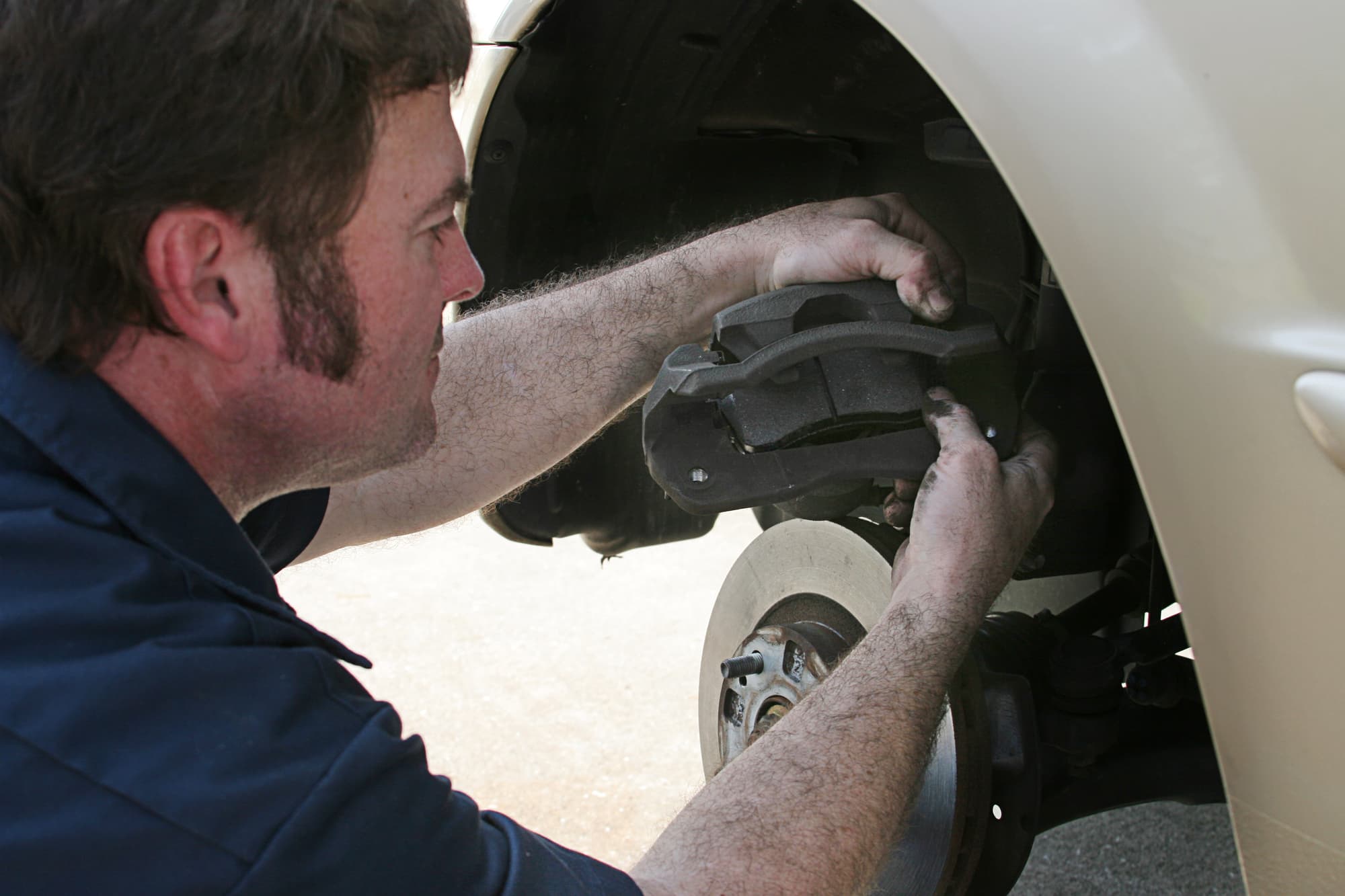The Pros And Cons Of Ceramic, Organic And Metallic Brake Pads

If your car vibrates, makes noise or pulls to one side when you brake, it’s important to get your brakes checked as soon as possible. In most cases, replacing the brake pads will resolve the issue. However, there are three types: organic, ceramic and metallic. Here’s what you should know about each kind.
Organic brake pads
At one time, brake pads were made of asbestos. However, due to environmental and health concerns, automakers now use a material known as non-asbestos organic (NOA). This mixed material is made of rubber, Kevlar, fibreglass and carbon compounds bound together with resin.
- Pros : Organic brake pads are the least expensive on the market and recommended for normal driving. They generate enough friction to effectively stop the average vehicle yet don’t produce as much heat as other pads, thereby putting less stress on the rest of your car’s braking system.
- Cons : Organic brake pads wear out more quickly than other types, which means you’ll have to replace them more often. They also don’t work as well as ceramic and metallic pads in extreme temperatures. In addition, you have to apply a bit more pressure to the foot pedal than you do with other types of brake pads.
Ceramic brake pads
These brake pads are made from a type of dense ceramic that has copper fibres in it in order to increase friction and conductivity.
- Pros : Ceramic is the quietest brake pad material. Moreover, ceramic brake pads perform better than organic brakes in a range of temperatures.
- Cons : Ceramic brake pads are pricier than other types. Plus, they underperform in extreme cold. In addition, ceramic doesn’t absorb as much heat as other materials. Consequently, more stress is distributed to the rest of the braking system.
Metallic brake pads
These brake pads are made of copper, steel, iron and other metals mixed with a graphite binding component.
- Pros : Metallic brake pads perform better than organic and ceramic brake pads in a wide range of temperatures. They’re responsive and require minimal pressure on the pedal. The metal also withstands heat well.
- Cons : Metallic brake pads are noisier than other types. Their high degree of sensitivity means your ride may be more jerky than what you’d experience with ceramic or organic brake pads. Metallic brakes are pricier than organic brake pads but more affordable than ceramic ones.
Brake service in British Columbia and Alberta
At Minit-Tune & Brake Auto Centres our technicians are available to inspect, diagnose and repair all types of braking systems. We’ll check your brakes at every oil change appointment and let you know if the brake pads need to be replaced. Contact us today schedule at an appointment at any one of our convenient locations in the Okanagan Valley, on the Lower Mainland, in the Fraser Valley and in Calgary and the surrounding areas.
MINIT-TUNE BLOG
Minit-Tune & Brake Auto Centres Address Common Issues
Here at Minit-Tune & Brake Auto Centres in British Columbia, we’re always pleased to help our customers get the most out of their cars and trucks. To that end, we’ll add a relevant blog topic from time to time to keep you up to date and getting the most out of your vehicle.
